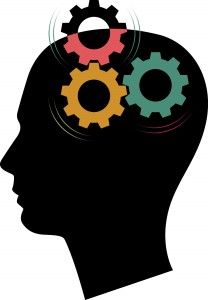Quiz: What is Your Emotional IQ?

We have all met people who, for some reason, are successful at almost everything they do: the straight-A student of normal intelligence, the adequate co-worker who lands all promotions and the average-looking guy or girl who captures the most attention at a party. Have you ever wondered why some people are so successful in their personal or professional lives when they seem no more capable, intelligent or skilled than anyone else? While many people place an emphasis on intellectual intelligence, how often do we consider a person’s emotional intelligence?
According to research reported in the popular book by science writer Daniel Goleman Emotional Intelligence: Why It Can Matter More Than IQ, emotionally intelligent people are often more successful in their lives than those with other forms of intelligence, such as a high IQ. Goleman’s website reports that “our emotions play a much greater role in thought, decision making and individual success than is commonly acknowledged.” He defines emotional intelligence “as a set of skills, including control of one’s impulses, self-motivation, empathy and social competence in interpersonal relationships.”
This theory fits in with research by Dr. Salvatore Maddi, founder of The Hardiness Institute, who’s posed that the biggest predictor of personal success is not necessarily the circumstances you endure but your ability to endure them – in other words, your “hardiness.” Hardy individuals have qualities of emotional resilience; they are better able to cope under challenging conditions. The three characteristics of hardiness are defined by Dr. Maddi as commitment, control and challenge (the “three C’s”). “Commitment” represents a curiosity toward life and a willingness to stick things out when the going gets tough. “Control” describes a person’s belief that they can influence the outcome of things; they feel they can take actions that will improve their circumstances. “Challenge” represents a person’s outlook, their feeling that change is normal and that challenges are actually opportunities for growth, as opposed to overwhelming sources for stress. According to Dr. Maddi, people can both test and build their hardiness skills to become more resilient in their lives.
Emotional intelligence relates to hardiness as it describes “the ability to identify, use, understand, and manage emotions in positive ways to relieve stress, communicate effectively, empathize with others, overcome challenges, and defuse conflict,” according to HelpGuide.org. HelpGuide describes the four attributes of emotional intelligence as including: self-awareness: knowing one’s own emotions and how they affect their behavior, self –management: the ability to control one’s feelings and actions, social awareness: an understanding of the emotions of others, and relationship management: the ability to communicate and to develop and maintain positive relationships.
So how emotionally intelligent are you? Learn your emotional IQ by taking the Emotional Intelligence Test. Results will include a list of your strengths as well as the areas you can work on. Click here to begin
Tags: emotional IQ, self-awareness, self-understanding, success








Great article but test is a scam – you must pay to see results.
Thank you, Judi. The test used to be available for free, we have switched to a new test by GoodTherapy that offers both free results and more detailed results for a small fee.